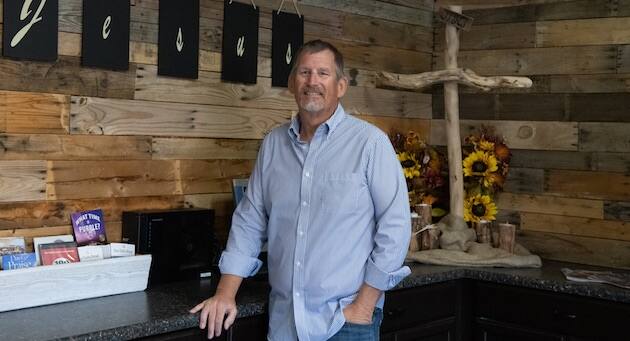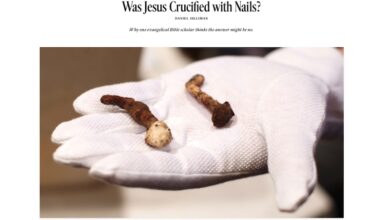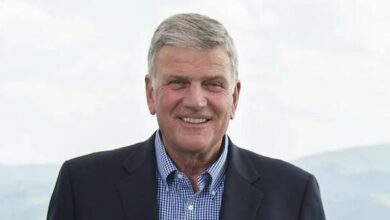Ruling on church restrictions applauded as win for freedom

Religious freedom advocates applauded a federal appeals court decision this week that blocked enforcement of Nevada’s pandemic-related restrictions on churches because they treat various secular events and businesses “significantly better” than worship gatherings.
A three-judge panel of the Ninth Circuit Court of Appeals – generally considered the most liberal of the federal appellate courts – unanimously granted a preliminary injunction Tuesday against the state for attendance limits on houses of worship that are stricter than those imposed on casinos, bowling alleys, strip clubs, retail stores and restaurants. In returning the case to a federal judge, the panel said Calvary Chapel Dayton Valley, the church that brought the lawsuit, had shown it likely would succeed in its claim that Gov. Steve Sisolak’s limit of 50 people for corporate worship violates its First Amendment right to the free exercise of religion.
The Ninth Circuit Court “got this case right,” said Russell Moore, president of the Southern Baptist Ethics & Religious Liberty Commission (ERLC).
READ: Covid restrictions increasing poverty, hunger
“Government cannot single out and treat churches differently from other gatherings simply because they are houses of worship,” Moore said. “That is out of step with the First Amendment and our long American history of free exercise.”
David Cortman, senior counsel for Alliance Defending Freedom (ADF), described the ruling as “a significant win.”
“There is no constitutional right to gamble, but there is one that protects attending worship services,” Cortman said in a written statement. “The government has a duty to respect the First Amendment, so it can’t single out churches for harsher treatment than secular activities. Such disparate treatment is both illogical and unconstitutional.”
ADF is representing Calvary Chapel Dayton Valley in its lawsuit.
The Ninth Circuit action is the latest in a series of decisions in response to challenges by churches and other religious bodies of state and local directives intended to protect public health during the COVID-19 pandemic. Some of those restrictions, such as Nevada’s, have treated churches and other worship communities unequally in comparison to many businesses, the ERLC and other religious freedom advocates have pointed out.
The ruling by the Ninth Circuit demonstrated again the ongoing effect of a recent opinion by the U.S. Supreme Court. On Nov. 25, the high court blocked enforcement of New York’s pandemic restrictions on religious gatherings, finding they “single out houses of worship for especially harsh treatment.”
In the wake of its ruling on the New York limitations, the Supreme Court ordered a federal judge in California Dec. 3 to reconsider, in light of that decision, his refusal to grant relief to a church that had challenged the state’s restrictions. The justices issued similar orders Dec. 15 in challenges to restrictions on worship services in Colorado and New Jersey.
In its opinion in the Nevada case, the Ninth Circuit panel said the Supreme Court’s ruling on the New York restrictions requires it to overturn the lower court. The Nevada restrictions, “although not identical to New York’s, require attendance limitations that create the same ‘disparate treatment’ of religion,” judge Milan Smith wrote for the panel.
In the opinion, Smith said the state’s directive must have a “compelling” interest and be “narrowly tailored” in fulfilling that interest.
“[I]nstead of a fifty-person cap, the Directive could have, for example, imposed a limitation of 50% of fire-code capacity on houses of worship, like the limitation it imposed on retail stores and restaurants, and like the limitation, the Nevada Gaming Control Board imposed on casinos,” Smith wrote. “Therefore, though slowing the spread of COVID-19 is a compelling interest, the Directive is not narrowly tailored to serve that interest.”
READ: CDC: Actual covid deaths tallied
The panel’s opinion blocked Nevada from instituting restrictions on worship services that are smaller than 25 percent of capacity according to the fire code.
Calvary Chapel Dayton Valley challenged an order from Sisolak this summer that limited religious gatherings to 50 worshipers no matter the size of the building while permitting casinos and other venues to operate at 50 percent capacity regardless of their size.
Sisolak, a Democrat, issued a revised directive in late September that expanded the attendance limitations for worship gatherings, but it still provided looser restrictions to casinos and other businesses. Religious liberty advocates said the rule remained unconstitutional. Sisolak has since restored the 50-person cap on worship services.
In a written statement, Sisolak said, “While we’re disappointed by the Court’s decision, we respect and will comply with this Order.” He recommended, however, that religious leaders limit attendance to 50 people at this time.
As he had earlier in the year, the ERLC’s Moore encouraged Sisolak in a written release Dec. 15 “to instead partner with churches, as is happening in communities all over the country, to combat this virus. This is a time when we need trust and cooperation from every sector of society. Churches are eager to serve their communities safely, and should be allowed to do so.”
The ERLC filed a friend-of the-court brief Dec. 10 with the Supreme Court in support of Calvary Chapel’s request for an expedited ruling by the justices on its free-exercise claim. That request is pending. The National Association of Evangelicals and Lutheran Church-Missouri Synod joined the ERLC on the brief.
The Ninth Circuit, which is based in San Francisco, includes nine states.
–By Tom Strobe | Baptist Press






